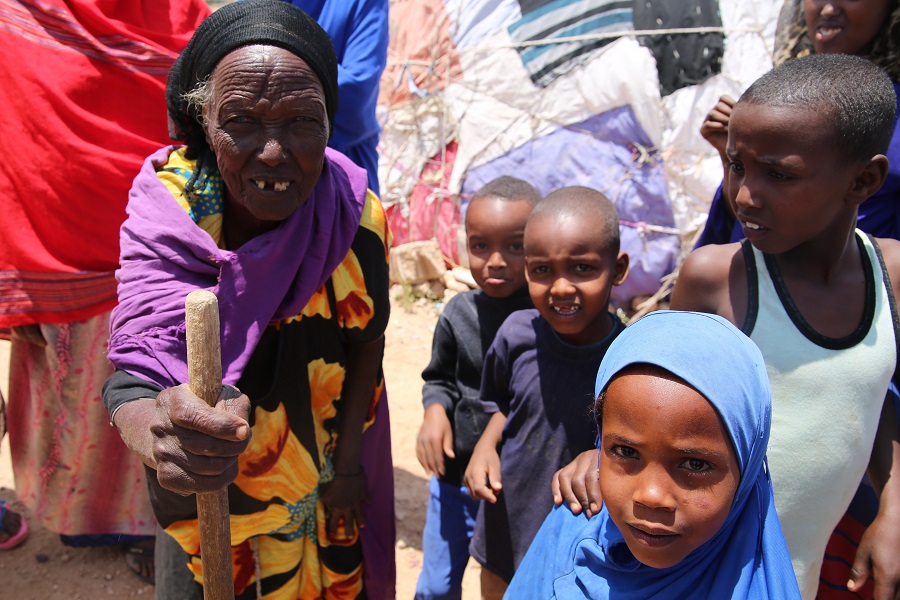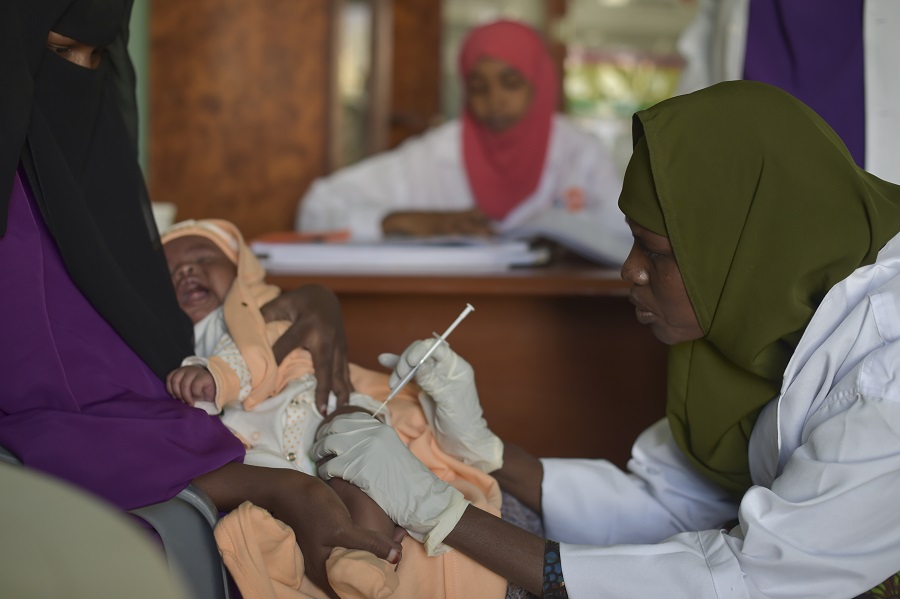 The concept of UHC addresses people of all backgrounds and ages. Credit: Fouzia Bano
The concept of UHC addresses people of all backgrounds and ages. Credit: Fouzia Bano
12 December 2021 – In 2012, in acknowledgement of the role health plays in social, economic and political aspects of life, the United Nations General Assembly passed a resolution urging countries to progress towards the concept of universal health coverage (UHC). UHC means that all individuals and communities receive the health services they need without suffering financial hardship.
To raise awareness about this concept, every year since 2012, UHC Day has been commemorated on 12 December. This year, the theme for the day is ‘Leaving no one’s health behind: Investing in health systems for all.’ This theme is relevant for countries worldwide, including Somalia, particularly after the secondary impacts of COVID-19 pandemic on a fragile health system in the country.
Struggle to pay for health services
In Dusamareb, Galmudug State, as a single mother, Amina Abdulle Mohamud is worried about her 6 children’s future. Her work allows them to cover the daily needs, with limited savings for the future. Her former husband, who is jobless, cannot contribute to the children’s living expenses and the Government cannot offer much support with health and education either.
Recently, Amina’s eldest daughter, Siham, suddenly collapsed. Amina rushed her daughter to the city hospital, where they were referred to a hospital in Mogadishu. While reaching the Digfer Hospital, Amina had already spent US$ 400. After a week of being admitted at the facility, Siham was diagnosed with epilepsy. By the time they returned home, Amina had spent US$ 1200 for treatment of her eldest daughter.
“I come from a middle-class family and I am still really struggling to pay bills and look after the health of my children,” said Amina pensively. “I don’t know how people with less money are coping.”
The Mohamud family is not the only one finding it hard to pay for health services out of their own pockets, with so many other priorities to pay for.
With one of the most tenuous health systems in the world and decades of instability and recurring health emergencies putting communities to test, Somalia has a universal health coverage index of
25 out of 100, which shows how difficult it is to access health services needed.
Plans under way to offer essential package of health services
 Plans are underway to implement the essential package of health services to reach more families. Credit: Tobin Jones
Plans are underway to implement the essential package of health services to reach more families. Credit: Tobin Jones
In 2018, the Federal Government of Somalia collaborated with the World Health Organization (WHO) and other partners to start the journey of rolling out UHC across the country. UHC comprises the full range of essential, quality health services, from health promotion to prevention, treatment, rehabilitation, and palliative care, all offered to people when and where they need them, and without facing any financial hardship.
Currently, plans are under way to implement a set of prioritized essential package of health services across the country using domestic and external resources, through the primary health care (PHC) approach. This means offering comprehensive, integrated levels of care and services that respond to the health needs of all the people, with a functioning referral system across all levels of care, in order to ensure that families like Amina’s are not pushed into poverty because of out-of-pocket expenditure.
The dream of UHC is achievable
PHC also means taking care of public health goods and functions, with a multisectoral approach to address the wider determinants of health, and empowering people in the field of health. PHC provides the 'programmatic engine' for UHC, the health-related Sustainable Development Goals and health security.
With the steps that WHO is taking in collaboration with the Ministry of Health and partners, the vision in the country is to ensure families like Amina’s do not fall into poverty because of catastrophic health expenditure.
“The dream of UHC is achievable, even in fragile settings,” said Dr Mamunur Rahman Malik, WHO Representative to Somalia. ”The concept of universal health coverage provides a unifying language that brings together social justice, and health equity through basic service provision and can be an opportunity in fragile contexts as the country slowly and gradually recovers from the COVID-19 pandemic. If we are to prevent future pandemics and achieve health and well-being for all by 2030, we must prioritize equity – invest more in health and allocate resources efficiently and equitably according to need of everyone, everywhere."
Related link
Universal Health Coverage Day, 12 December 2021









